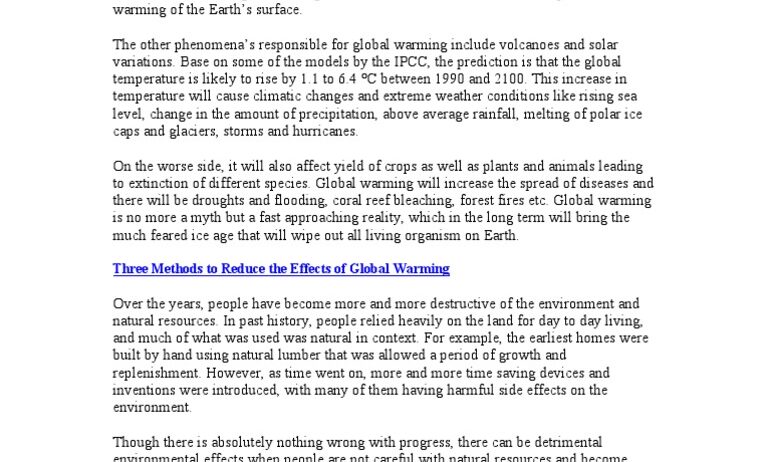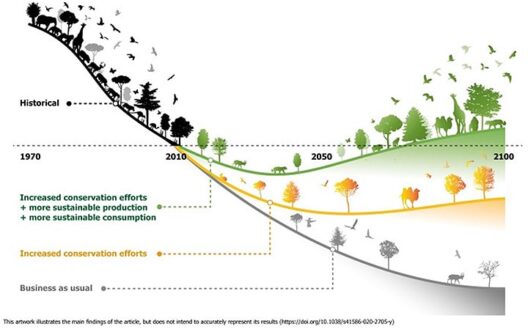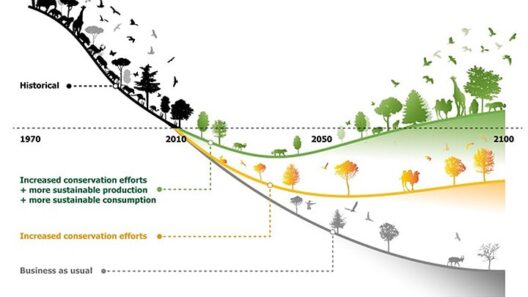Global warming, a looming specter upon our planet, demands immediate and unwavering attention. As temperatures incrementally rise due to anthropogenic activities, understanding how we can mitigate its effects becomes imperative. From individual actions to collective societal changes, a concerted effort is crucial to ensure a habitable world for future generations.
Unveiling the Climate Conundrum: Understanding Global Warming
At its core, global warming refers to the sustained increase in Earth’s average surface temperature, primarily due to greenhouse gas emissions, deforestation, and industrial processes. These elements foster a greenhouse effect, where gases like carbon dioxide and methane trap heat within the atmosphere, leading to climatic shifts. The consequences are pervasive: escalating sea levels, erratic weather patterns, and the loss of biodiversity.
The first proactive step in combatting this crisis lies in understanding the root causes of these climate anomalies. Only through rigorous comprehension can individuals and societies mobilize to formulate effective strategies aimed at curtailing emissions and adapting to life under evolving conditions.
Every Action Counts: Individual Responsibility in Climate Management
Individual lifestyle choices wield considerable influence. Even the smallest actions can ripple throughout communities, cumulatively leading to a significant impact on global warming. Firstly, one of the most straightforward strategies involves reducing energy consumption. Utilizing energy-efficient appliances, engaging in regular maintenance to ensure efficiency, and making a conscious effort to turn off lights and unplug devices when not in use can drastically lower energy demand.
Concurrently, embracing renewable energy sources, such as solar and wind power, can tremendously reduce reliance on fossil fuels. Homeowners can take advantage of solar panels, contributing to a more sustainable energy landscape while decreasing their carbon footprint. This transition not only benefits the environment but can also yield long-term economic savings.
Furthermore, sustainable transportation emerges as a vital strategy in minimizing greenhouse gas emissions. Utilizing public transit, carpooling, biking, or walking reduces the dependence on gasoline-powered vehicles. For those who must drive, embracing electric or hybrid cars is a worthy investment that aligns personal convenience with environmental stewardship.
Transitioning Towards a Circular Economy: Redefining Consumption
Moving beyond individual habits, society at large must seek to embrace a circular economy—an alternative to the conventional linear economy of take, make, and dispose. In a circular framework, products are designed with an emphasis on reuse, repair, and recycling. This shift can mitigate the depletion of natural resources and reduce waste that contributes to landfill methane emissions.
Engaging in conscientious purchasing habits also plays a pivotal role. Favoring products with sustainable materials or those with minimal packaging can significantly reduce pollution. Supporting local markets and businesses fosters a community-based economy that lessens transportation emissions associated with long-distance shipping.
Moreover, conscientious consumption extends to food choices. The agricultural sector is a significant contributor to greenhouse gas emissions. Consequently, adopting a plant-based diet or reducing meat consumption can yield environmental benefits, as livestock production is particularly resource-intensive. Seasonal and locally-sourced produce not only supports local economies but also minimizes carbon emissions related to food transportation.
The Population Factor: Advocating Sustainable Growth
Population growth and urbanization exacerbate the issues surrounding global warming, necessitating thoughtful urban planning and sustainable development initiatives. Encouraging dense, walkable cities can reduce reliance on vehicles and promote a lifestyle centered around sustainability. Public spaces and green areas contribute not only to improved air quality but also enhance the quality of life for city dwellers.
Additionally, advocating for policies that prioritize sustainability, such as carbon taxes or stricter emission regulations, is vital for steering economic activity towards greener practices. Legislative advocacy can incentivize businesses to adopt sustainable practices, thus addressing the climate crisis on a larger scale. By engaging the political sphere, individuals can amplify their voice in creating a sustainable future.
Educational Imperatives: Cultivating a Climate-Conscious Society
Education serves as the bedrock for instigating a collective consciousness about global warming and its myriad effects. Empowering the next generation with knowledge about climate science fosters advocacy from an early age. Schools, communities, and organizations should prioritize environmental education, equipping individuals with the tools necessary to enact change both locally and globally.
Moreover, fostering a culture of innovation can unlock pathways to groundbreaking solutions for climate change. Encouraging research in sustainable technologies—from carbon capture methods to advancing energy storage—will enhance capabilities towards addressing climate issues more effectively. A well-informed society is an empowered one, capable of catalyzing meaningful progress in reducing emissions.
In conclusion, avoiding global warming necessitates a multi-faceted approach that combines individual responsibility, collective societal action, and proactive policy advocacy. Everyone holds the potential to contribute to a transformative shift—a pragmatic approach towards sustainability that promises not only to mitigate the impact of climate change but also create a resilient and thriving future for our planet. By converging personal actions with broader systemic change, we can confront the formidable challenge of global warming, ensuring that we not only survive but thrive in the face of adversity. The time for action is now—let us embrace it wholeheartedly and pave the way for a sustainable tomorrow.






